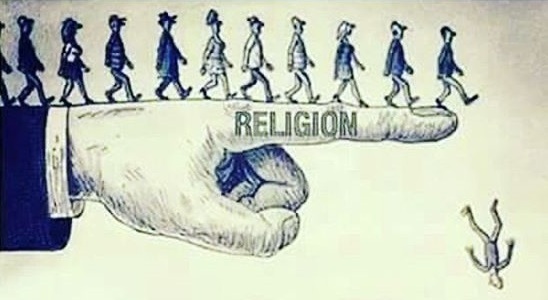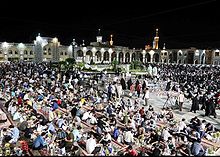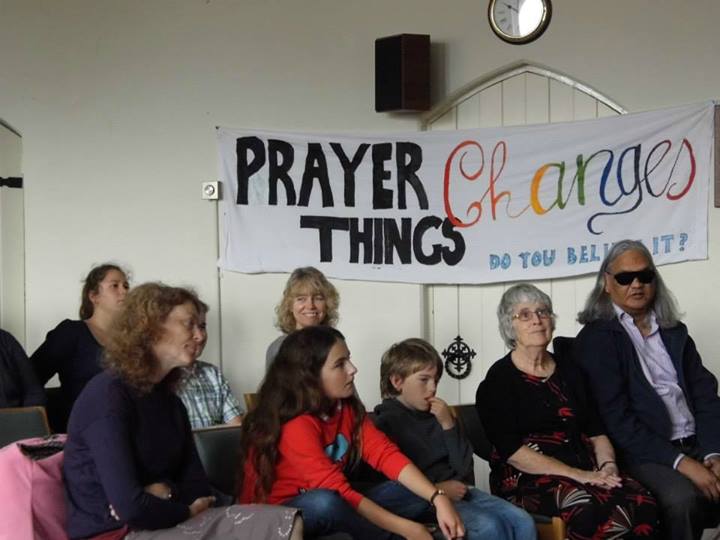The world doesn’t just exist, it shows up for us. It appears as the pure experience of the present moment. And one of the most amazing things about the world is that it changes – from age to age, generation to generation, over the course of a human lifetime.
We can not ignore the world. We live in it, and we have to face those things that happen in that world. Today it would even be very difficult to live on a desert island just to live on our own without any interruption or interference from other human beings.
We are here and though others can ignore us, we can not ignore them nor deny our own existence. We have our fleshy bodies within it our brains which enable us to think and reason. From the moment we are born we are confronted with the world and shall have to learn to live in that world. From that first step on earth, time does not let us on our own but however we want, time binds us to itself. It makes hours, days, months and years go by while we have to hold in it and come to the realisation that we are getting older. However, we turn it or turn it and look for the ‘why’ we are here and the ‘how’ we can make it true here, we are pulled in all directions to do this or that or to be here and there.
Sometimes we even wonder not only why we exist, but also why this world and this universe exist. Lots of people also wonder what there would be in outer space. In the darkness behind the horizon, stars and planets get us dreaming of other planets and perhaps also about other living beings. Why should we be the only intellectual beings?
When we see time passing, we often feel as if we are running out of time. Looking at how glaciers melt and how waters rise, but so many in the world do not want to believe climate change is a serious business and that we are heading for an unseen natural disaster if we do not act quickly to combat global warming.
If nothing existed there would be nothing to contemplate existence and no existence to contemplate. Now we have to think about a lot of things. In fact, it happens that our brains don’t let us rest easy and get our heads spinning with all sorts of (sometimes foolish) thoughts.
Why did anything happen?
Why didn’t nothing happen?
Why did all those planets came into existence?
Why does anything at all exist?
What does it mean to exist?
Why did man came into existence and why does he thinks he is superior to all other beings?
Why are we here?
What is life all about? or What is the purpose of existence?
Is that what we think to see realy there? Or is it just an illusion?
Philosophers through all ages have tackled this most fundamental question of existence. Many persons came to practice or investigate the systematised study of general and fundamental questions, such as those about existence, reason, knowledge, values, mind, and language. There was and is the searching, the rational, abstract, and methodical consideration of reality as a whole or of fundamental dimensions of human existence and experience. We know of major Eastern philosophers, like Buddha; Confucius; Dai Zhen; Han Feizi; Laozi; Mencius; Mozi; Nichiren; Nishida Kitarō; Wang Yangming; Xunzi; Zhu Xi.
But in the West, they did not have to undercut and could in turn make others think and philosophise with a variety of thoughts. There were many Ancient Greek philosophers, like Aristotle and his followers, who brought a whole movement into being, Aristotelianism. Epicurus and Epicureanism.
The Western world provided lots of major Western philosophers, like Peter Abelard; St. Anselm; St. Thomas Aquinas; St. Augustine; Noam Chomsky; Jacques Derrida; Duns Scotus; Michel Foucault; Jürgen Habermas; Martin Heidegger; David Hume; William James; Saul Kripke; Gottfried Wilhelm Leibniz; John Locke; John Stuart Mill; Friedrich Nietzsche; Hilary Putnam; Jean-Jacques Rousseau; Bertrand Russell; Jean-Paul Sartre; Socrates; Benedict de Spinoza; Bernard Williams; Ludwig Wittgenstein, and so many more who request our attention.
Some of those philosophers from the east and west will tell you that everything that we experience as real is an illusion. Especially in Eastern philosophies, we find ‘masters’ or ‘teachers’ who will say this is all a dream.
Could it be that we are part of a dream or living in some surreal universe?
And is there some Being managing it all?
Is there a Creator or Manipulator? And are we just His toys?
We may see all this physical stuff around us, but in which way is it real, or do we get to know how it really is?
Over the years, mankind had to change its views about so many things. More than once, man had it wrong. More often there were groups of people or organisations, who wanted to have control over people and made it a rule or doctrine that people had to believe. The Roman Catholic Church was (and is still) a master in that.
Many people have high ideas about themselves. Sometimes it happens that they suddenly become confronted with themselves and have to come to see that their thoughts and emotions are ‘nothing’. It is all, they will say, the play of pure consciousness. John Locke considered “the perception of what passes in a man’s own mind” man’s consciousness.
Pure being is all that really is. Everything else is an illusion created in an ungraspable field of consciousness, awareness and sentience. Some philosophers regarded it as a kind of substance, or “mental stuff,” quite different from the material substance of the physical world. From such philosophers’ ideas many started to believe we exist out of more than one element. They managed to have several people believe that when they die that there is a spiritual element (the soul) that will go to other places (like purgatory, hell or heaven) and another physical element that will transform into another body (incarnation and reincarnation). That reincarnation, also called transmigration or metempsychosis, in religion and philosophy, would be a rebirth of the aspect of an individual that persists after bodily death — whether it be consciousness, mind, the soul, or some other entity — in one or more successive existences. Depending upon the tradition, these existences may be human, animal, spiritual, or, in some instances, vegetable, depending on the way one lived before.
The French mathematician, scientist, and philosopher René Descartes for instance as one of the first to abandon Scholastic Aristotelianism, formulated the first modern version of mind-body dualism, from which stems the mind-body problem. Because he promoted the development of a new science grounded in observation and experiment, he is generally regarded as the founder of modern philosophy. We all know his expression
“I think, therefore I am” (best known in its Latin formulation, “Cogito, ergo sum,” though originally written in French, “Je pense, donc je suis”).
The medieval English logician St. Anselm of Canterbury (1033/34–1109), is at the heart of Descartes’s rationalism, the view that regards reason as the chief source and test of knowledge, knowledge about an existing thing solely on the basis of reasoning from innate ideas, with no help from sensory experience. Descartes has an innate idea of Allah Al-Aliyy or Most High God, being The Sublime God as a perfect being. For him, it is clear that God necessarily exists, because, if He did not, He would not be perfect. It is That God Who presides in the great assembly (Psalm 82:1) of human beings, who often think they are greater than others.
Jim Holt, the American journalist, author in popular science and essayist, who often contributed to The New York Times, wrote the nonfiction work and NYTimes bestseller for 2013, Why Does the World Exist?, presented the central question ‘Why is there something rather than nothing?’, which lies in the domain between philosophy and scientific cosmology. Also the English cosmologist and astrophysicist Martin Rees looked at the big-bang theory of the origins of the universe. By examining the nature of existence itself Holt was following in the path of the philosophy called ‘Existentialism’, which stresses human existence in the world concreteness and its problematic character. for those writers ‘Existence’ is primarily the problem of existence (i.e., of its mode of being); it is, therefore, also the investigation of the meaning of Being. Going back to the intitial thought of previous philosophers
What is Being?
What does it mean to be?
To be is the question!
What does it mean to exist?
What is the nature of being?
For the German philosopher, counted among the main exponents of existentialism, Martin Heidegger, the human subject had to be reconceived in an altogether new way, as “being-in-the-world.” Because this notion represented the very opposite of the Cartesian “thing that thinks,” the idea of consciousness as representing the mind’s internal awareness of its own states had to be dropped. With it went the assumption that specific mental states were needed to mediate the relation of the mind to everything outside it.
Man philosophers had the above questions, bringing them to think about their own being and the being of others around them. Those people thinking and writing about those life questions bring the deep contemplation of what it means to be human. We think no other living being is concerned with such questions. Even pets don’t wonder what their role in the family might be (we think). Even though plants and animals have sentience, we suspect that they have no thinking capacity whereby they would ascertain their essence in this world.
On the other hand, it can well be that one of the reasons that other creatures don’t worry about the meaning of life could be that they don’t seem to have any choice about how to live it. Dogs and cats just live the way dogs and cats live. They respond to circumstances the way dogs or cats generally do. Sure they may differ one to the other, but generally speaking they act more or less predictably like dogs or cats.
But human beings can also be very predictable. We also could say human beings act in a similar way. Many people around us are also very predictable. Though we can notice that even when the majority lives a standard way of living, we can find people who follow a totally different course. There are human beings who stand out and surprise us. We also find several people who do not want to follow the tract the majority follows. They don’t live an ordinary life. They live an extraordinary life, that is remarkably new and different from the norm. And sometimes these rare human beings discover a way of being that eventually becomes the new norm.
Martin Heidegger was convinced that the history of Western thought has failed to heed the ontological difference, and so has articulated Being precisely as a kind of ultimate being, as evidenced by a series of namings of Being, for example as idea, energeia, substance, monad or will to power. He recognised that most of us live as ‘the one’, or that we do generally what ‘one’ does or what would be the general norm to do. Though we are often concerned with what ‘one’ tends to be concerned with.
He spoke about “Dasein” or “being there”, the most fundamental a priori transcendental condition or mode of being not so much to be seen from the point of being there but from the perspective of how the being essentially unfolds. As Heidegger puts it:
“A being is: Be-ing holds sway [unfolds]”.
The hyphenated term ‘be-ing’ is adopted by Emad and Maly, in order to respect the fact that, in the Contributions, Heidegger substitutes the archaic spelling ‘Seyn’ for the contemporary ‘Sein’ as a way of distancing himself further from the traditional language of metaphysics.
We all should be aware that somehow we come on this planet and have to make the best of it. We receive an overdose of information during our lifetime and are fed an untold number of knowledges and rules, with which and by which we try or must try to live. Through all these influences we have to go through, we have to try to build our lives and live a generic human life.
Unlike the rest of the animal kingdom, a human being could, if they were heroic enough, choose to live a different kind of human life and could come to live a profoundly authentic and original human life. The American lecturer, poet, and essayist, the leading exponent of New England Transcendentalism, Ralph Waldo Emerson called such human beings ‘representative’ because their lives represented new possibilities for being human.
I do not think “Life is But a Dream” even when we may dream that we live or imagine our life to be a certain way. When we are dreaming it can well be that we are not aware that we are asleep. But also when we are awake it can happen that we wonder if we are dreaming, because what we encounter seems to be so unreal. How often does it not happen that we must come to the conclusion that we were in a dream-world. And that dream world was not always to our liking. More than once the dream world that comes into our mind, is one that can cause fear, but luckilly there is also that dream world that causes joy, surprise, and myriad other emotions. Dreams take us, seemingly, to worlds we’ve been to and worlds that we have never experienced. In them we re-live what we lived before in that world we should recognise as the real world. But we should be aware that very often we are deceived by the real world around us. Often we do not want to know that this world has played tricks on us.
Every day we have doubts about certain things, often which we should recognise as facts. There and then we once more are confronted with those questions that come up into our mind so often. Oh, so often we are troubled, and question our own self and all the things we see happening around us. Then we might ask
What is our role in this all?
What happens when we become older?
As time passes we start getting in contact with other peoples and other cultures. Mostly how we grow up is decided by our parents and our surroundings. The culture of our homeland, the religion of our parents, and the friends we hang out with, all influence us and mould us in a form we do not mind or which bothers us. In case we do not like the form in which we are moulded we get frustrated and come into a stressful position. sometimes people would love to have been born in an other place or have lived in other circumstances. But the choice is not up to us. We are dropped in a time and place and have to find our way in it.
We have no memory of a previous life, because there is just not such another life.
Could we prove that we have ever lived if we did not have our memories?
No, there would be no way to prove it. There is not one person who ever could recollect and prove some previous existence. Even for those who are born, when young, their memory is too short and after some time they shall not be able to tell what happened in those first years of life. When you would ask a toddler to prove he lives, he would not be able to do so, because he has not enough memory and not enough knowledge. The very young cannot prove they live because they do not have memories. Memory starts to develop a bit later than the first few years of life. Memory is an essential component to the human mind, so important that we cannot say that we exist without memory. Knowledge and memory are two requirements to realise that one is alive and can be. In other words, our very existence is hinged on our capacity to remember. Without our capacity to think, or to have thoughts, we can not remember nor can we analyse. And to be able to know we live we need to be able to think, consider and to review.
Memory, as the encoding, storage, and retrieval in the human mind of past experiences, is unconditionally linked to thought and being. Without awareness, there is no knowledge of being. We can notice this when people have reached an age when they start to suffer from dementia. It is then as if their thinking but also their “being” falls away.
Memory is both a result of and an influence on perception, attention, and learning. It is those thoughts of past events and influences that help shape us, making us who we are. With that awareness and understanding of that event and of that personality we are confronted with, we ourselves are presented with a mirror, in which whether or not we will accept, love or hate that reflection. But dar we will recognise that this is that “I” that we wish, desire or curse.
+
Preceding
With Positive Attitude
There can only be hope when there is a will to be and say “I am”
I and Thou
Our existence..
Leap
To come to live in the peace of fulfilment of our own Divine Identity
What is Existential Ergonomics?
On the Anxiety of Non-Being
Running out of time
Why does the world exist
Our real self ever perfect and free
Life’s Purpose
Modern Living
Quandary of Reflections
Existence in the non-existent and non-existence in the existence
Human experience maintained in a fragile existence
Soul-searching
Vivamos Videre, the more we live, the more we are a witness to life
++
Additional reading
- Immortality, eternality – onsterfelijkheid, eeuwigheid
- Onsterfelijkheid – Immortaliteit – Immortality
- About The story of Creation 1 Existing cosmologies
- Genesis Among the Creation Myths
- Creator and Blogger God 1 Emptiness and mouvement
- Creation of the earth and man #14 Formation of man #6 The Uncreated One, neshemet ruach chayim and nephesh
- Jesus begotten Son of God #11 Existence and Genesis Raising up
- A Living Faith #10: Our manner of Life #2
- Ability
- Ability (part 2)
- Ability (part 3) Thoughts around Ability
- Ability (part 4) Thought about the ability to have ability
- The Opinionated Truth
- God make us holy
- Two states of existence before God
- Self-development, self-control, meditation, beliefs and spirituality
- Wisdom Quote #21…..seeking within with Carl Jung!
- Living in this world and viewing it
+++
Related
- Who am I to…?
- Spike the obit
- Awareness is All
- Trouble being myself
- #being as details
- Conditioning and Consciousness
- Becoming
- What Descartes Proved
- The ABCs of Python: The Identity of “is”
- When I sleep, I think, I dream [A philosophy post?]
- Wisdom Collection Collection 26. Human thinking is a creation process with devastating results. Thinking is separation of myself from my source.
- Mind and language essays on descartes and chomsky
- Therefore (Quote Series)
- Essays on the philosophy and science of rene descartes
- Descartes proof for the existence of god essay
- My favorites: philosophy ideas
- I remember therefore I am
- Descartes, Perception, and Society
- Strange nonsense
- Perception and Reality
- How Ego Disrupts the Cosmic Brilliance of ‘Is’
- I am
- What is Left to Doubt?
- Life is But a Dream
- In here and out there
- Confusion of knights
- Awareness, Consciousness, Experience, Mind
- Interlude: Descartes’ Role
- Descartes
- Consciousness, Personhood
- St. Borges of Canterbury
- Spirituality of the Left
- Breakthrough
- The floating consciousness
- Useful Heideggerian Concepts
- At The Existentialist Cafe by Sarah Bakewell is a biography of existentialism
- Martin Heidegger, the Standing Metaphor, and the Politics of 1935
- Time and Being
- Heidegger and the Question of Being
- Existential Reflections: The Shadow Side of Human Existence (2)
- Second Principle- Freedom in Being
- Every man is born as many men and dies as a single one.
- The ‘Man for All Seasons’ and Ontological Exigency
- Martin Heidegger Quotes
- Religion, Consumerism, and Absurdism: Modernity and the Quest for Meaning
- Two reviews of The Early Foucault (Polity, 2021) by Colin Koopman and Jasper Friedrich – and a note on Heidegger
- [Reflections] Why Does the History of Philosophy Matter to Philosophy?
- Modern Transcendentalism
- Ralph Waldo Emerson
- American Voices: Ralph Waldo Emerson
- Transcendentalism literary origins in america and influence essay
- Living in Subversia
- Ernest Holmes and the Science of Mind Part One: ‘Ye Are Gods’
- What are the main features of Shelley’s Transcendentalism ?
- Autumn, Concord, and Transcendentalism
- Transcendentalism : An American Movement
- Self-Awareness, Self-Reliance and Non-Comformity


































































